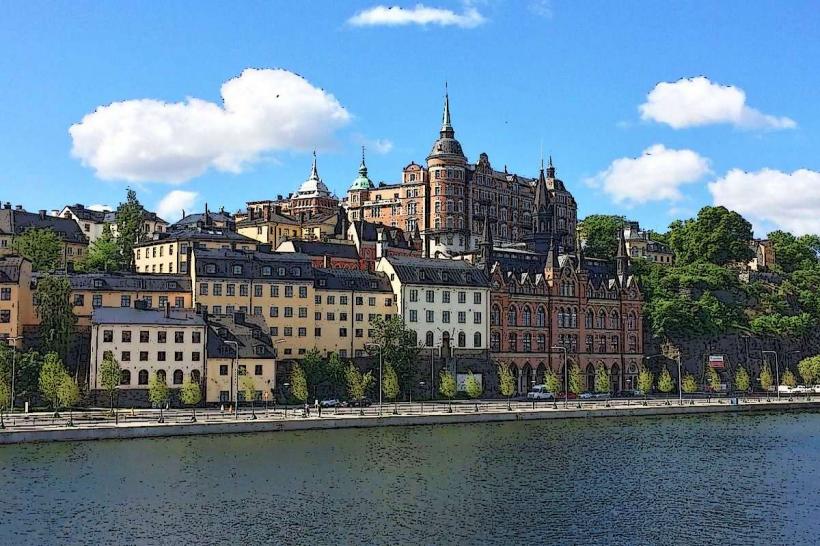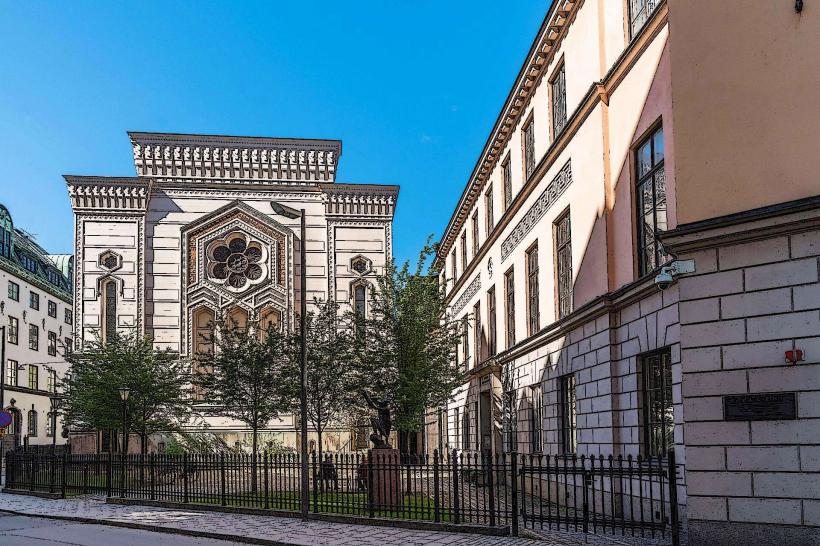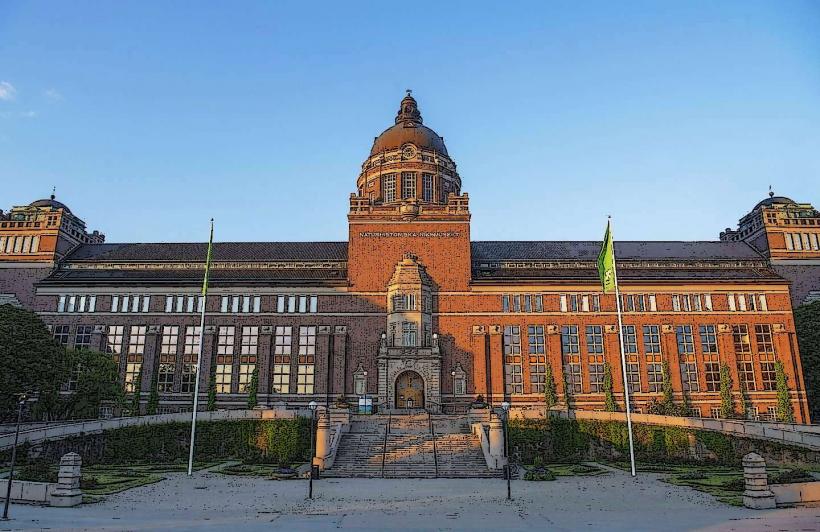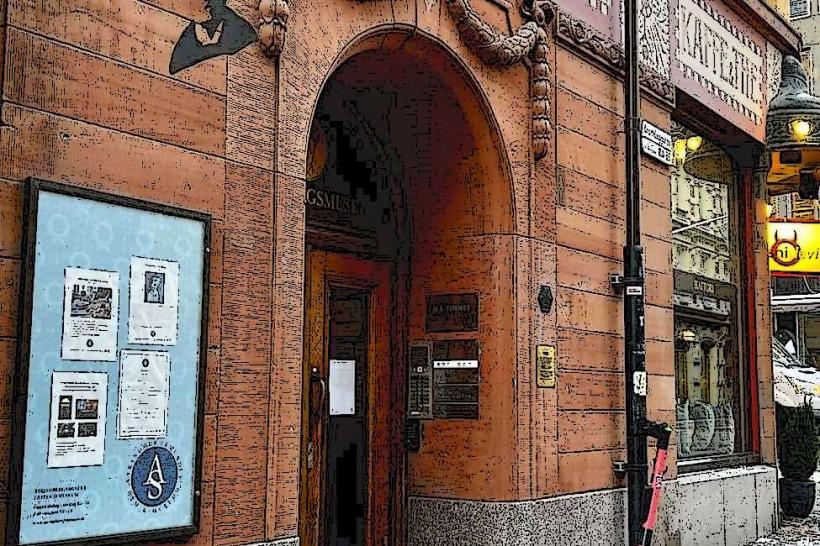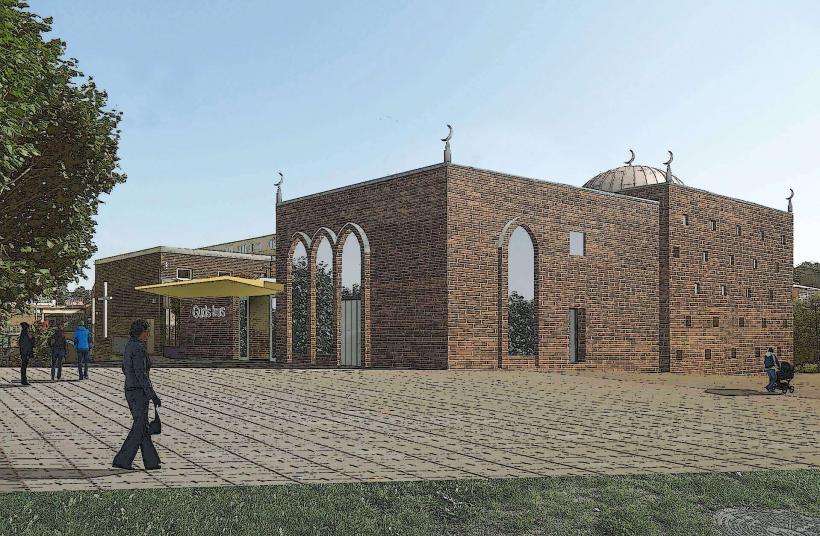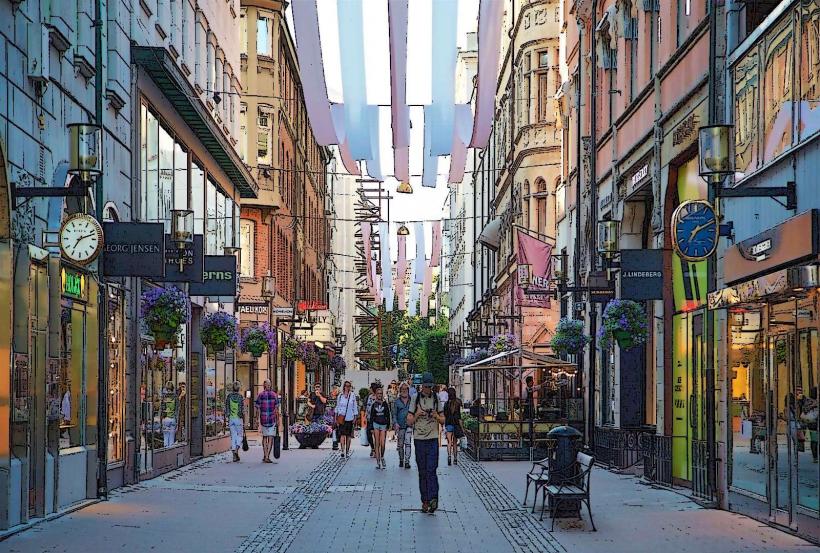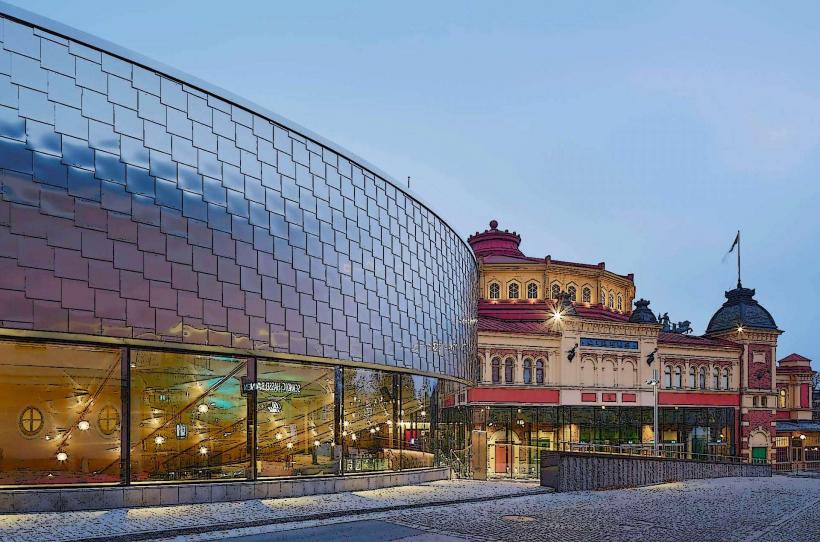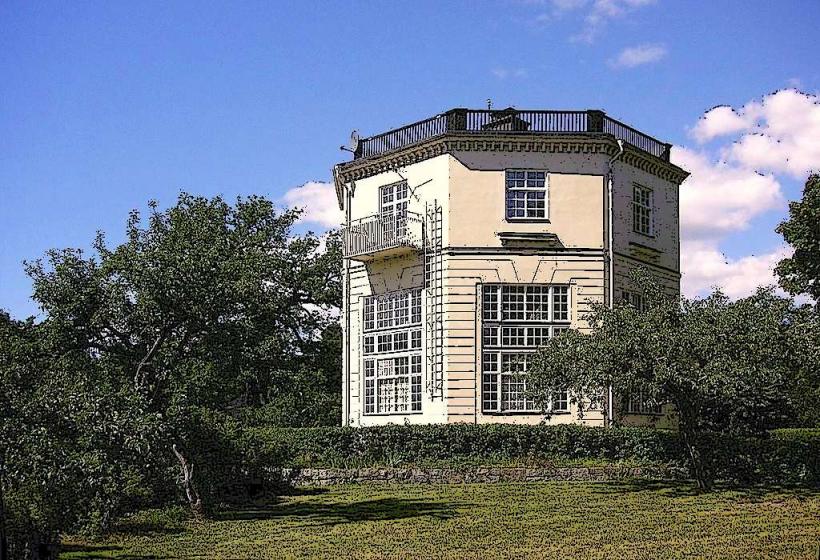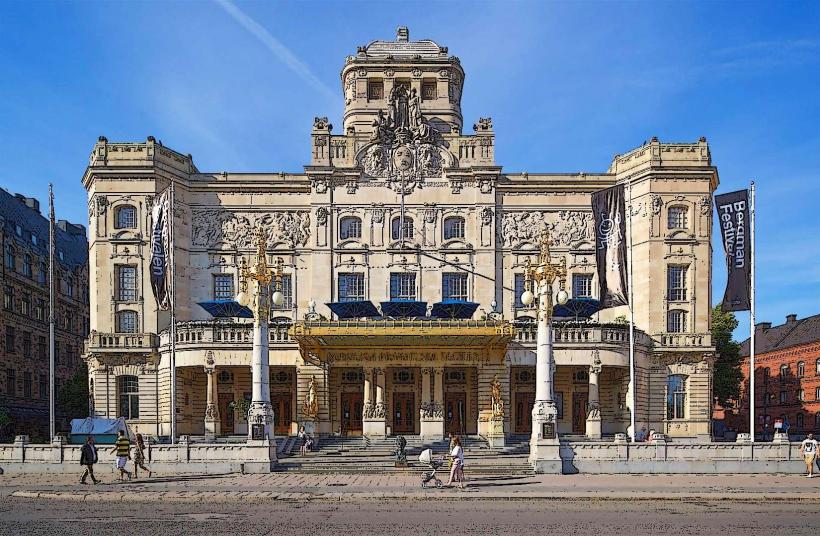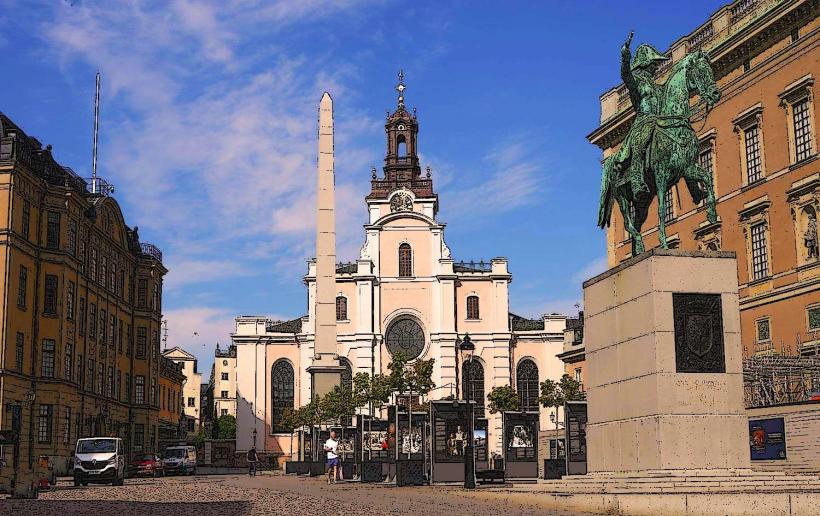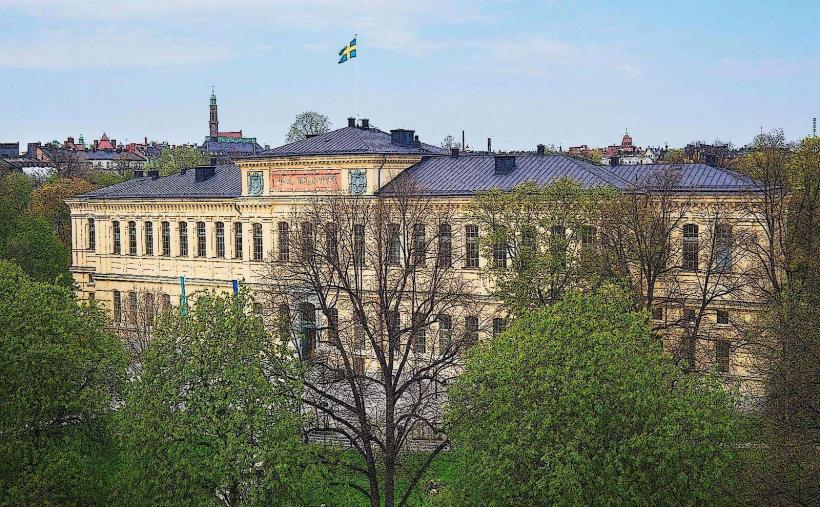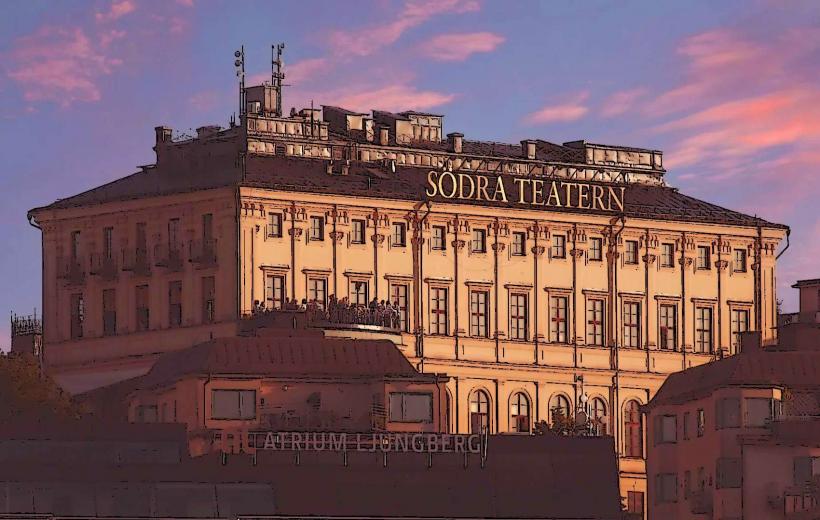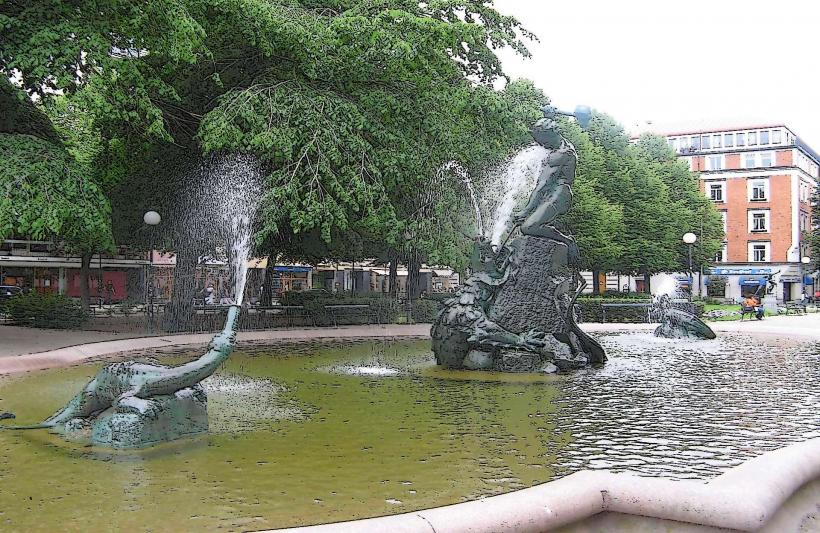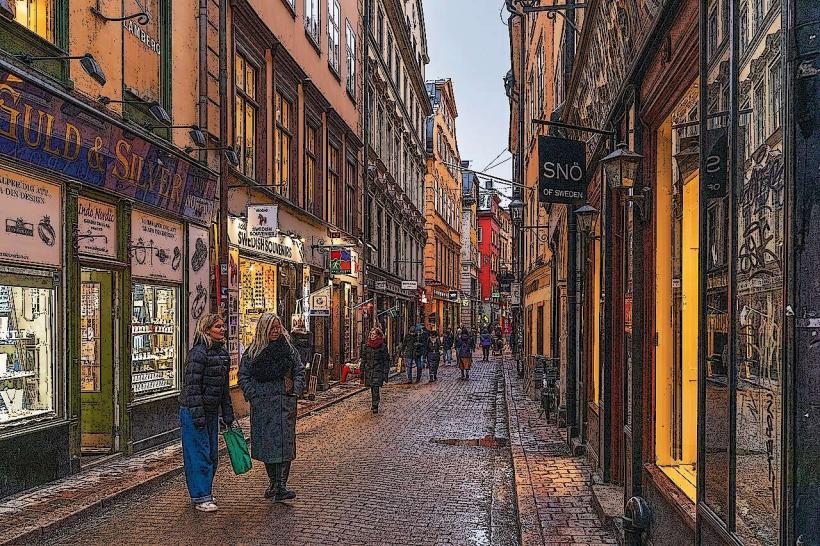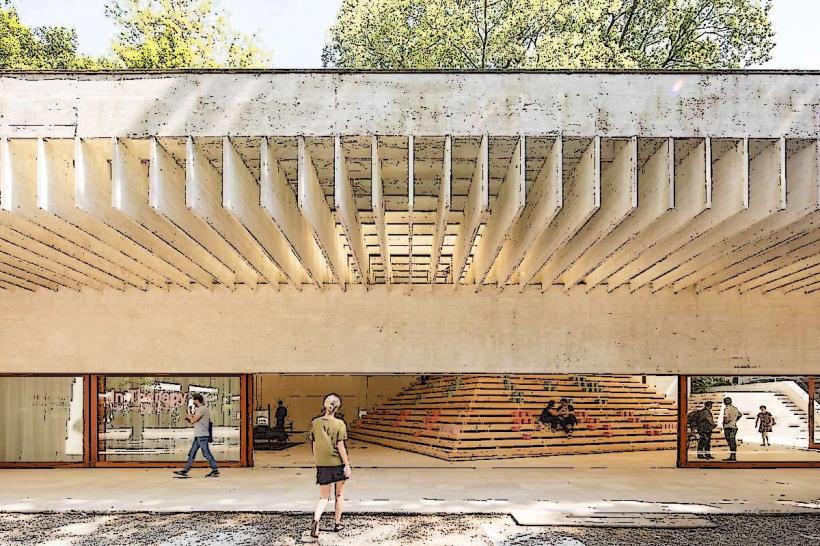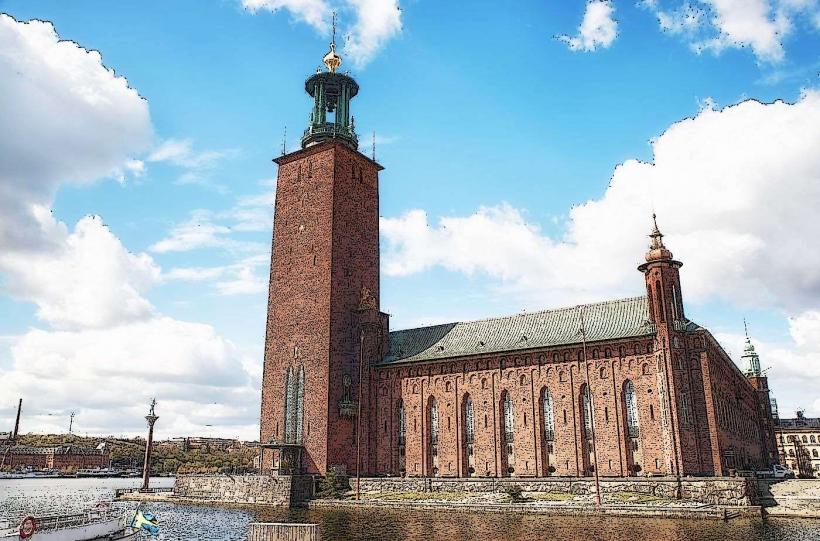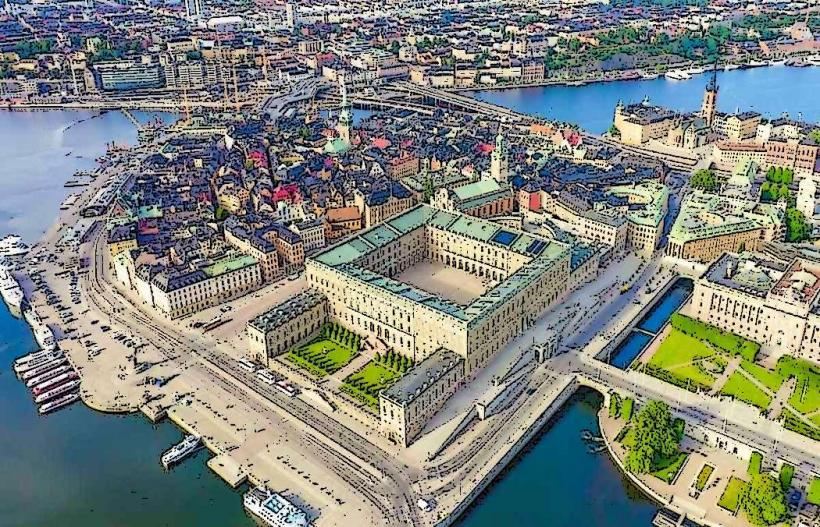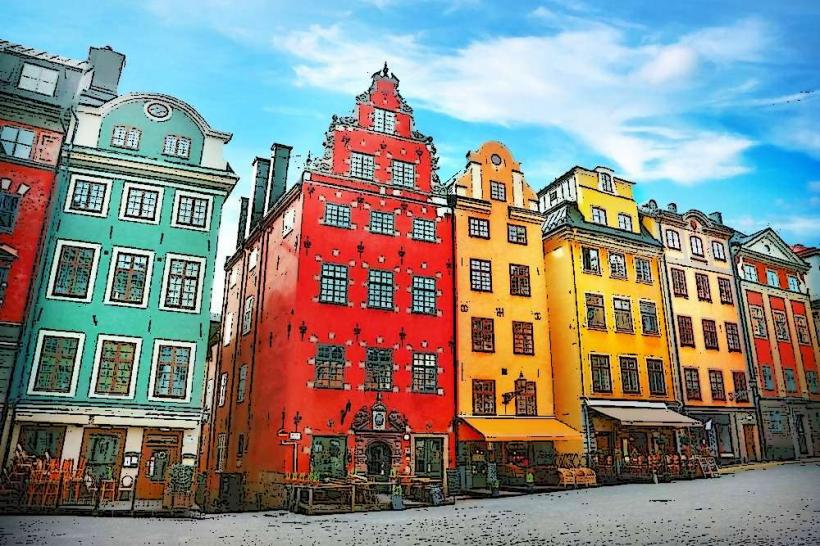Information
Landmark: Millesgården Sculpture ParkCity: Stockholm
Country: Sweden
Continent: Europe
Millesgården Sculpture Park, Stockholm, Sweden, Europe
Millesgården is an art museum and sculpture park located on the island of Lidingö, just outside Stockholm, Sweden. It was once the home and studio of sculptor Carl Milles and his wife, artist Olga Milles.
Visual Characteristics
The park features numerous bronze sculptures, often monumental in scale, depicting mythological figures, angels, and human forms. These sculptures are placed in terraced gardens, fountains, and elevated columns, creating a dramatic visual effect against the backdrop of the Värtan strait. The main building, the Millesgården Museum, is a white stucco structure with classical influences. The gardens incorporate stone staircases, water features, and carefully maintained vegetation.
Location & Access Logistics
Millesgården is located at Herserudsvägen 32, Lidingö, approximately 8 km northeast of Stockholm city center. Public transport access involves taking the metro (Tunnelbana) Red Line 13 to Ropsten station. From Ropsten, transfer to the Lidingöbanan tram (Line 21) towards Gåshaga brygga, disembarking at Torsvik or Forestavägen. Alternatively, several bus lines (e.g., 201, 204, 205, 206, 211, 212) from Ropsten stop near Millesgården. Limited paid parking is available on site.
Historical & Ecological Origin
Construction of Millesgården began in 1906. It was designed by sculptor Carl Milles and architect Karl M. Bengtson, with later expansions by Milles's brother, architect Evert Milles. The original purpose was to serve as the home and studio for Carl and Olga Milles, eventually transforming into a foundation and museum. It opened to the public in 1936.
Key Highlights & Activities
Visitors can view the extensive collection of Carl Milles's sculptures, including "The Hand of God" and "Man and Pegasus." Exploration of the terraced gardens and their various levels is possible. The Millesgården Museum houses a collection of ancient art and temporary exhibitions. Access is provided to the Lilla Ateljén (Small Studio) and the Annes Hus (Anne's House), which display personal belongings and art. An on-site restaurant is available.
Infrastructure & Amenities
Restrooms are available within the museum building and near the entrance. Limited natural shade is provided by trees in certain garden areas; open terraces are exposed. Cell phone signal (4G/5G) is generally strong throughout the site. A restaurant and café are located on the premises, offering meals and refreshments. A museum shop is also present.
Best Time to Visit
The best months for a visit are May through September for optimal weather and garden conditions. Early morning or late afternoon is ideal for photography, as the sun casts long shadows and highlights the bronze sculptures. Midday sun should be avoided for harsh lighting. The park is accessible year-round, but snow cover in winter alters the visual experience.
Facts & Legends
Carl Milles designed the gardens to create an illusion that the sculptures were floating above the water. This effect is achieved through their placement on high pedestals and the site's elevation above the Värtan strait. Milles was known for his dramatic and often gravity-defying compositions.
Nearby Landmarks
- Lidingö Centrum: 1.5km East
- Elfviks Gård: 6km Northeast
- Fjäderholmarna Islands: 3km South
- Waldemarsudde: 5km Southwest
- Tekniska museet (National Museum of Science and Technology): 4km West



